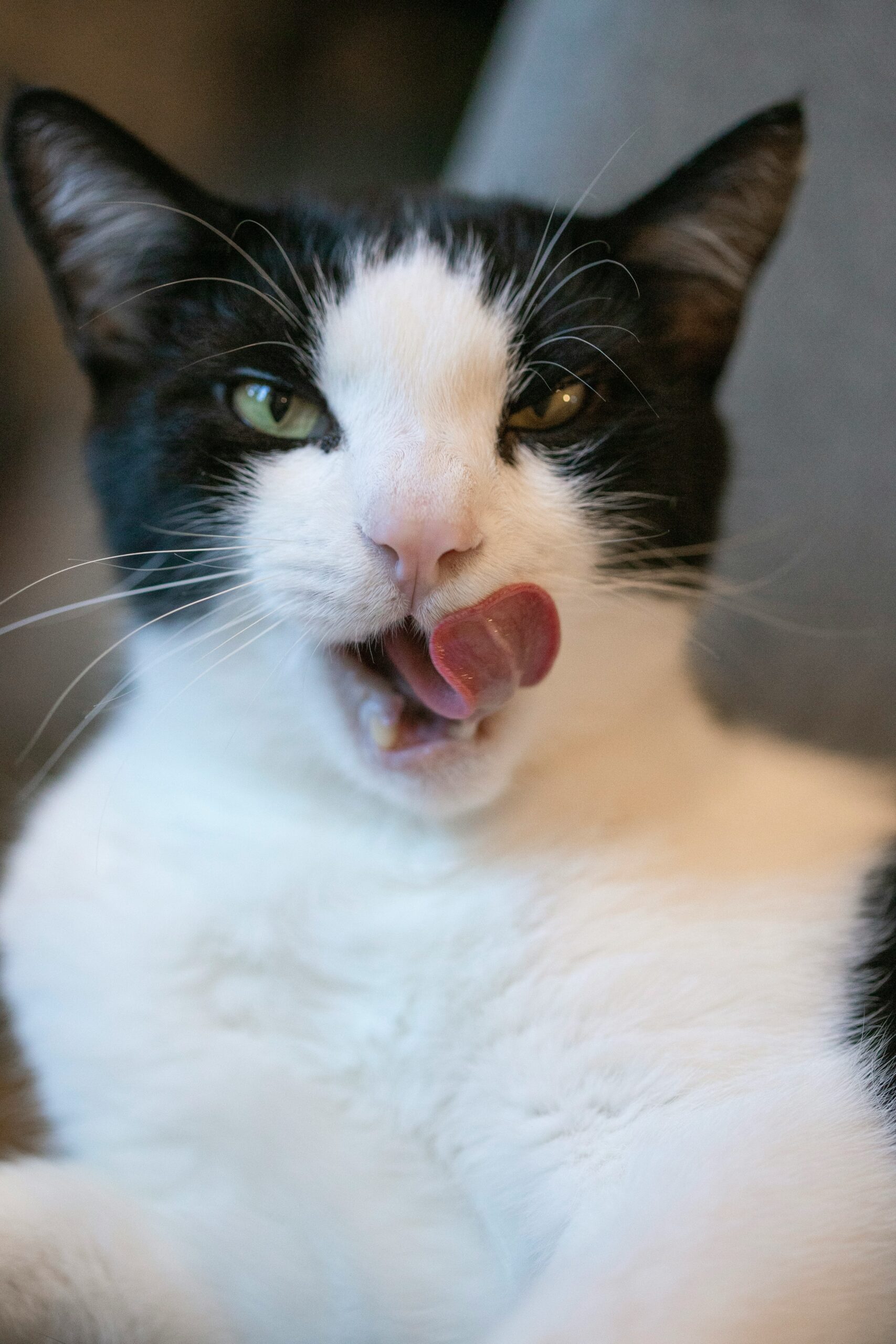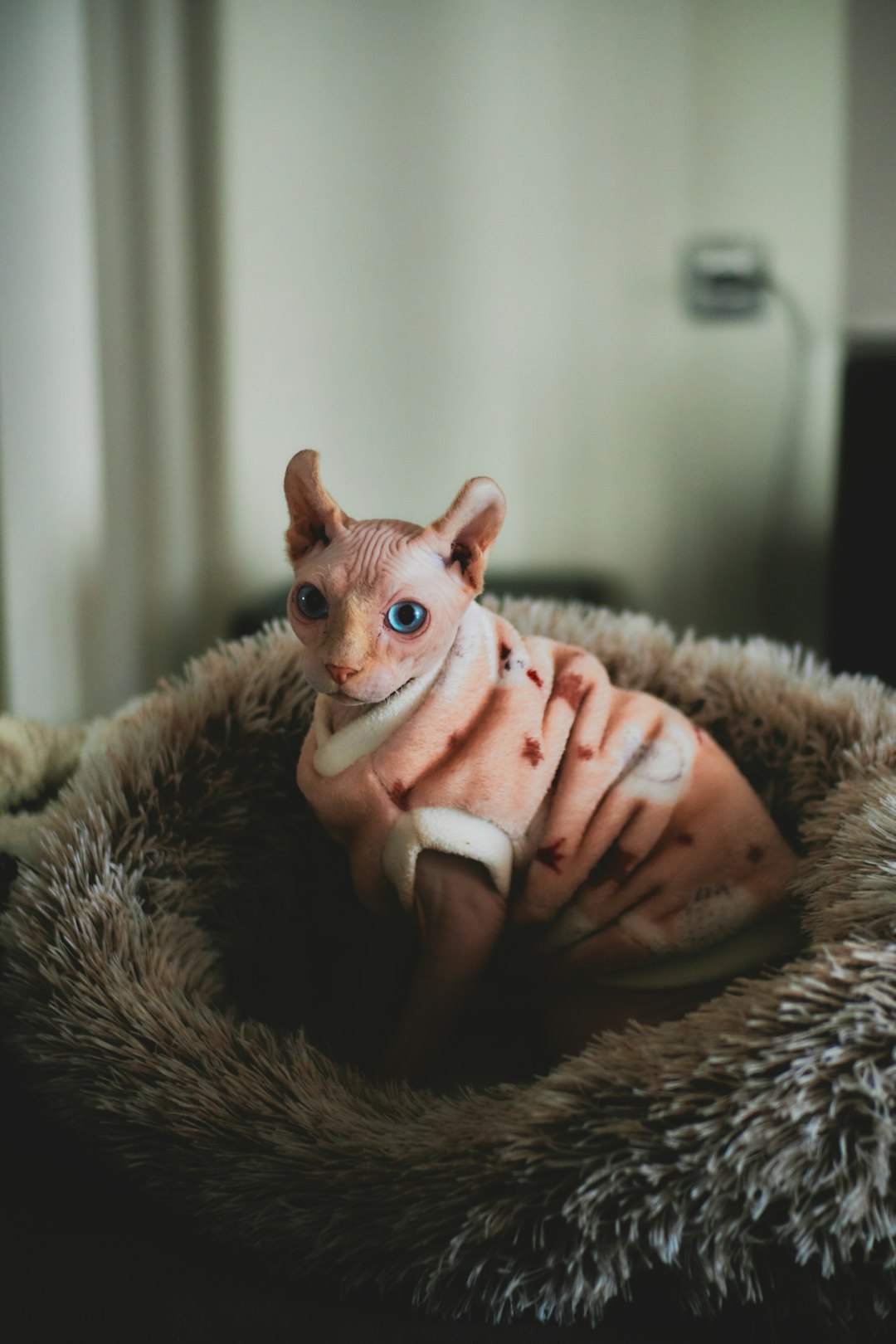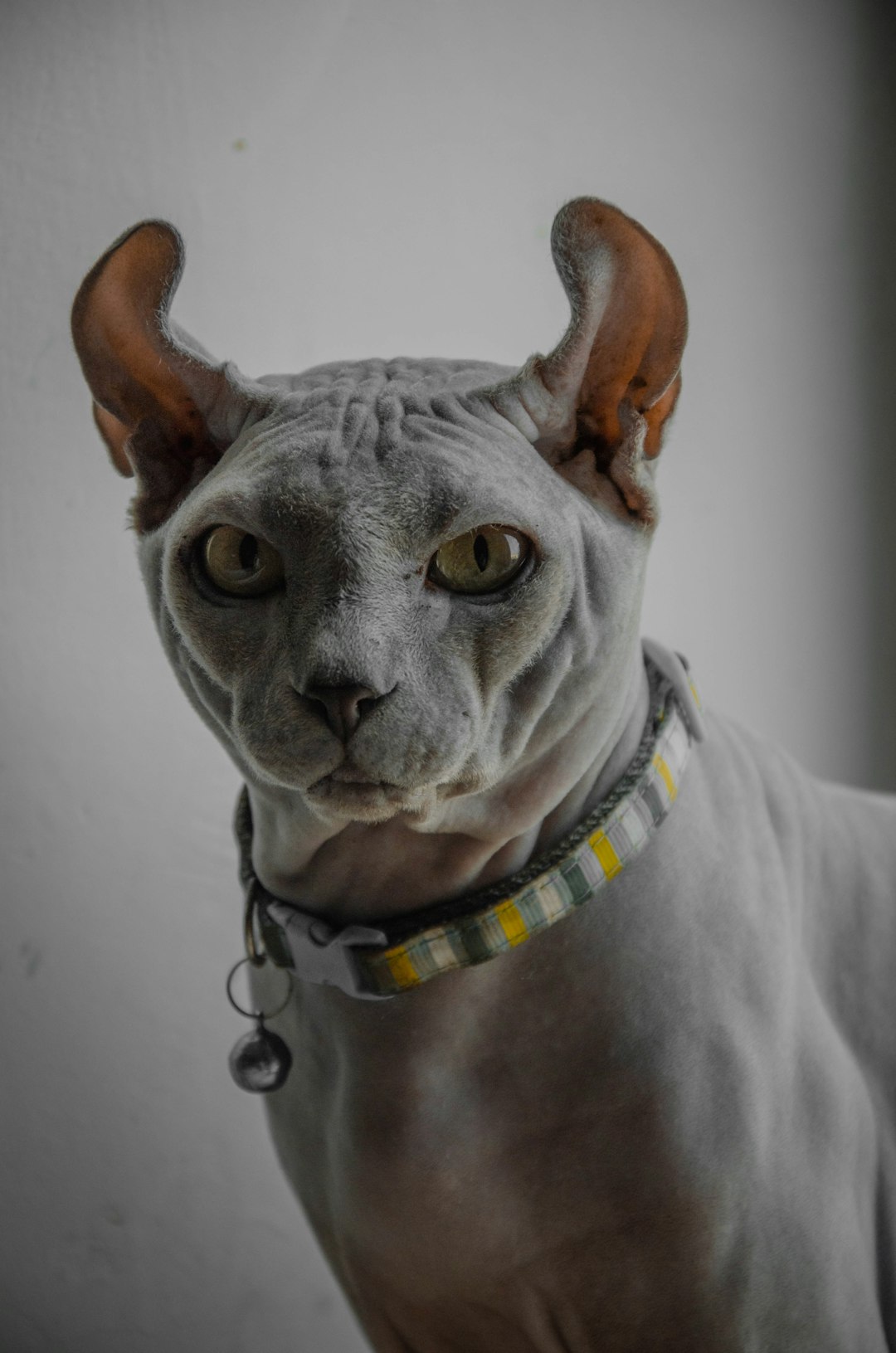Many cat owners often find themselves pondering the question, “why does my cat lick me?” Understanding this behavior can deepen the bond between you and your furry friend. Cats lick for various reasons, from grooming themselves and demonstrating affection to seeking attention and providing comfort. Moreover, this instinctual behavior can stem from stress or anxiety, highlighting the importance of observing your pet’s overall health and emotional state. By recognizing these signs, you can respond appropriately and ensure a harmonious relationship with your beloved companion.
Understanding Feline Behavior
Understanding feline behavior is crucial to deciphering why does my cat lick me. Cats, as independent creatures, communicate differently from humans. Their licking habits can reveal a great deal about their feelings and intentions. Here are some key insights into feline behavior:
- Social Bonding: Cats often lick one another in a grooming ritual, enhancing their social bond. When your cat licks you, it may see you as part of its social group.
- Scent Marking: Cats possess scent glands, and licking is a way to mark territory. When your cat licks you, it may be claiming you as “theirs.”
- Comfort and Security: Licking can provide comfort, not just to the cat, but also to the person being licked. It signifies a safe environment and trust.
- Instinctual Behaviors: Kittens lick their mothers for nourishment and care. As adults, this behavior often continues as a way to express love.
- Play and Affection: Cats may lick you during playtime as a gesture of affection, mirroring their interactions with other cats.
Understanding these behaviors helps you respond appropriately to your cat’s actions and reassures you about why does my cat lick me consistently. By recognizing these cues, you enhance your bond with your feline companion, ensuring a harmonious relationship.
The Importance of Bonding
Understanding why does my cat lick me often revolves around the concept of bonding. Cats, like humans, form emotional connections with their companions, and licking is one way they express affection. Here are some key points to consider:
- Affectionate Behavior: When your cat licks you, it mimics the grooming behaviors they display with their fellow felines. This behavior signals trust and love, as they consider you part of their social group.
- Strengthening Relationships: Bonding is essential for your cat’s emotional well-being. Regular licking helps reinforce the bond between you and your pet, making them feel safe and secure.
- Mutual Comfort: Licking can serve as a means of providing comfort not just to your cat, but also to you. This mutual exchange enhances the connection, fostering a nurturing environment.
- Scent Marking: Cats have scent glands in their mouths, and by licking you, they may be marking you with their scent. This signifies that you belong to them, establishing a sense of ownership and companionship.
- Communication Channel: Licking establishes a quiet yet significant form of communication. Your cat expresses needs or emotions, indicating contentment or a desire for attention.
In summary, when pondering why does my cat lick me, remember that this behavior highlights the importance of bonding. Embrace these moments, as they play a crucial role in deepening your relationship with your feline friend.
Grooming as a Sign of Affection
When pondering why does my cat lick me, it’s essential to recognize that grooming serves as a significant expression of love and bonding in the feline world. Here are some key insights into this affectionate behavior:
- Social Grooming: Cats often groom one another to strengthen friendships. If your cat licks you, it signifies that they view you as a trusted companion, worthy of their affection.
- Scent Marking: Cats have scent glands in their cheeks and paws. By licking you, they deposit their scent and mark you as part of their territory, which signifies ownership and belonging.
- Comfort and Security: Grooming is a soothing activity for cats. When your cat licks you, it may be seeking comfort or wishing to create a calming environment.
- Hierarchical Signals: In some cases, a cat may lick their owner to reinforce their social structure. This behavior shows their recognition of you as an important figure in their life.
In summary, when contemplating why does my cat lick me, remember that this grooming behavior is a multifaceted expression of love, trust, and the unique bond you share. Embrace these moments, as they signify a strong connection between you and your feline friend.
Instinctual Behaviors in Cats
When pondering why does my cat lick me, it’s essential to recognize that this behavior isn’t merely a sign of affection. Cats exhibit licking as part of their instinctual behaviors. Here’s how these instincts manifest:
- Maternal Instinct: Kittens rely on their mothers for grooming and care. When your cat licks you, it may mimic this nurturing behavior, showcasing trust and affection.
- Social Bonding: In the wild, cats lick each other as a form of social bonding. This licking helps maintain group cohesion and reinforces social ties. If your cat licks you, it often indicates a desire for connection.
- Territorial Marking: Cats have scent glands in their mouths. Thus, when they lick you, they might be claiming you as part of their territory, marking you with their scent.
- Self-Grooming Transfer: Cats often groom themselves to clean and relax. When they lick you, they may simply be transferring their instinctual behaviors onto you, viewing you as part of their social unit.
Understanding these instinctual behaviors sheds light on why does my cat lick me. This behavior reflects their deep-rooted social structures and natural instincts, illustrating your cat’s complex and affectionate personality.
Seeking Attention and Comfort
When you wonder, “why does my cat lick me?” one possible answer could be that your furry friend is seeking attention and comfort. Cats often use licking as a social behavior to establish a connection with their owners. Here are some reasons behind this behavior:
- Desire for Interaction: Cats may lick you to engage in play or simply to get your attention. If your cat feels ignored, licking can serve as a gentle reminder to acknowledge their presence.
- Affectionate Seeking: Licking can become a soothing ritual for cats. They may instinctively lick to feel secure and comforted, acting as a bonding mechanism between you and your pet.
- Thermal Regulation: Cats sometimes lick as a way to regulate their own body temperature. By licking you, they may find your body warmth comforting, especially if they’re feeling cold or anxious.
Comparison: Licking vs. Meowing
| Behavior | Licking | Meowing |
|---|---|---|
| Purpose | Seeking comfort and bonding | Communicating needs |
| Frequency | Less frequent, more intentional | Can be frequent and varied |
| Context | Often during quiet, relaxed moments | Used throughout the day for various reasons |
In summary, if you find yourself asking, “why does my cat lick me?” remember that this action often stems from a deep desire for attention, comfort, and connection.
Taste Preferences of Cats
When wondering why does my cat lick me, it’s essential to consider their taste preferences. Cats are unique creatures with distinct dietary inclinations that can influence their licking behavior. Here are some key factors to consider:
- Taste Sensitivity: Cats possess fewer taste buds compared to humans, specifically lacking sweetness receptors. They often gravitate towards flavors that replicate their natural diet, such as proteins and fats.
- Texture Attraction: Cats may be drawn to textures they find appealing. For instance:
- Smooth Surfaces: Cats often lick to explore or enjoy the sensation of smooth skin versus rough textures.
- Familiar Items: Soft materials like clothing can also attract your cat’s licking due to their comfort and familiarity.
- Scent Influences: A cat’s keen sense of smell contributes significantly to their taste preferences. If your skin has traces of food, lotion, or scents reminiscent of prey, your cat might lick you in response to these enticing aromas.
- Personalization: Each cat has its unique taste personality. Some cats may develop a fondness for licking specific humans based on the scents they carry.
Understanding these aspects provides insight into why does my cat lick me. This behavior, driven by taste preferences, underscores the deep bond and familiarity your furry friend seeks through their actions. Always observe their licking behavior to gauge their comfort level and preferences!
Stress and Anxiety Responses
Cats communicate their emotions in various ways, and one common behavior is licking. If you’re wondering, “why does my cat lick me?” it could be a response to stress or anxiety. When a feline feels overwhelmed, licking can serve as a coping mechanism that provides comfort. Here’s how to recognize this behavior:
- Nervous licking: Continuous licking of you or themselves might indicate underlying anxiety.
- Environmental changes: New pets, loud noises, or changes in routine can trigger stress, prompting your cat to seek solace in licking.
- Signs of distress: Look for body language cues like flattened ears or a tucked tail alongside licking behaviors.
Understanding these signals can help you determine the root cause of your cat’s anxiety. You can compare normal grooming with stress-related licking:
| Behavior | Normal Grooming | Stress-related Licking |
|---|---|---|
| Frequency | Occasional, especially during downtime | Frequent and often compulsive |
| Duration | Short and intermittent | Prolonged and repetitive |
| Context | Often during relaxation | Triggered by changes or stressors |
If your cat frequently licks you out of distress, assessing their environment is crucial. Ensuring a calm space with familiar objects may reduce their anxiety. Understanding why does my cat lick me in these moments can also strengthen your bond and foster emotional support. If the behavior persists, consider consulting a veterinarian or animal behaviorist for further guidance.
Health Considerations for Licking
Understanding why does my cat lick me includes being aware of potential health concerns associated with excessive licking behaviors. While licking can signify affection or comfort, it may also indicate underlying issues. Here are some health-related reasons to consider:
- Allergies: Cats may lick excessively due to skin irritation or allergic reactions, which could be environmental or food-related.
- Skin Conditions: Problems like dermatitis or flea infestations can lead to increased licking as your cat tries to soothe the irritation.
- Infections: Bacterial or fungal infections can trigger self-grooming, which may also extend to licking their owners.
- Pain or Discomfort: If a cat is experiencing pain—whether physical or emotional—they may resort to licking as a coping mechanism.
Comparison of Licking Behaviors
| Type of Licking | Possible Health Concern |
|---|---|
| Occasional licking | Normal affection or grooming behavior |
| Excessive licking | Possible skin conditions or allergies |
| Licking specific areas | Pain or discomfort in that region |
| Licking followed by agitation | Stress, anxiety, or behavioral issues |
Being observant of your cat’s behavior and any accompanying signs, such as hair loss or skin redness, can help you determine why does my cat lick me excessively and whether a vet visit is necessary. Always consult with your veterinarian if you notice significant changes in licking habits, as they can help identify the root cause and recommend appropriate treatment.
How to Respond to Your Cat’s Licking
Understanding why does my cat lick me can help you respond appropriately and strengthen the bond with your feline friend. Here are some effective ways to respond to your cat’s licking:
- Acknowledge the Behavior: When your cat licks you, recognize it as a sign of affection or comfort. Use a gentle tone to speak to your cat, letting them know you appreciate their actions.
- Provide Positive Reinforcement: If your cat licks you at suitable moments, reward them with treats or praise. This reinforcement encourages this affectionate behavior.
- Set Boundaries: If licking becomes excessive or bothersome, gently remove yourself when it occurs. This communicates that while you value their affection, there are limits.
- Engage in Play: Sometimes cats lick to seek attention. Redirect this behavior through interactive playtime using toys. This not only diverts their licking tendency but also satisfies their need for interaction.
- Monitor the Context: Assess the circumstances surrounding the licking. If it relates to stress or anxiety, consider providing calming environments, such as cozy retreats or engaging toys.
- Be Observant: If the licking involves excessive grooming or seems compulsive, note any changes in your cat’s behavior. This awareness can help identify underlying health issues or emotional distress.
By understanding why does my cat lick me, you can create a healthy and fulfilling relationship with your pet, ensuring they feel secure and cherished.
When to Seek Professional Help
Understanding why does my cat lick me can often provide insights into your furry friend’s behavior. However, excessive licking can sometimes indicate underlying issues that may require professional attention. Here are some signs to watch for:
- Persistent Licking: If your cat licks excessively, it might be more than just affection; it could suggest anxiety or skin irritation.
- Changes in Behavior: Sudden shifts in your cat’s personality, such as increased aggression or withdrawal, warrant a visit to the vet.
- Skin Issues: Look for signs of irritation, redness, or hair loss in areas frequently licked. This could indicate allergies or infections.
- Lack of Appetite: If your cat stops eating along with excessive licking, consult a vet immediately.
- Grooming Obsession: If your cat becomes fixated on licking specific areas, it may suffer from a compulsive behavior disorder.
Here’s a simple comparison:
| Behavior | Potential Issue |
|---|---|
| Normal licking | Bonding, grooming, or seeking attention |
| Excessive licking | Stress, anxiety, irritation, or health problems |
| Licking with aggression | Pain or discomfort, possibly requiring medical evaluation |
If you find yourself questioning why does my cat lick me and notice any of these troubling signs, don’t hesitate to seek professional help. Quick intervention can lead to better outcomes for your feline companion.



